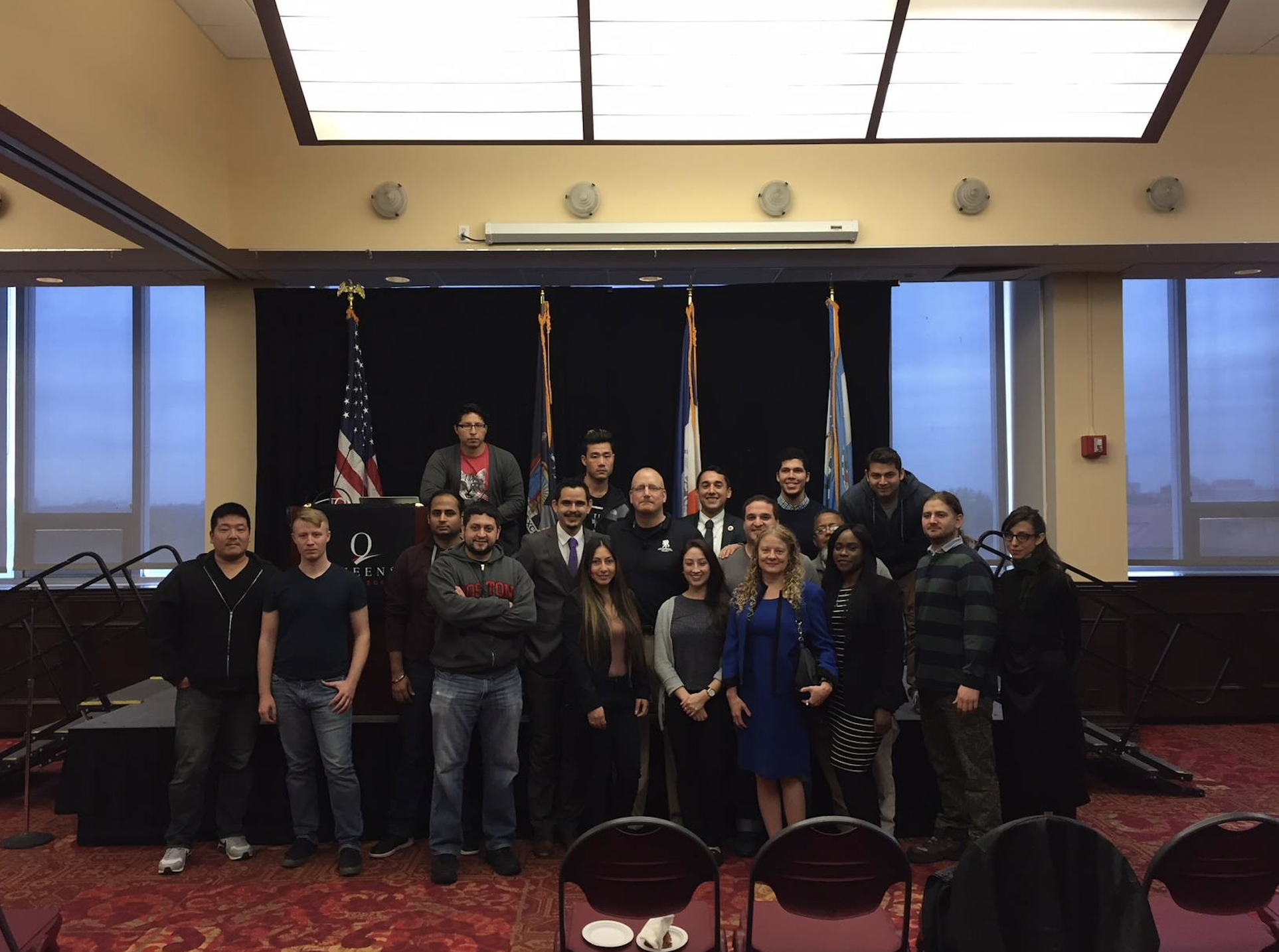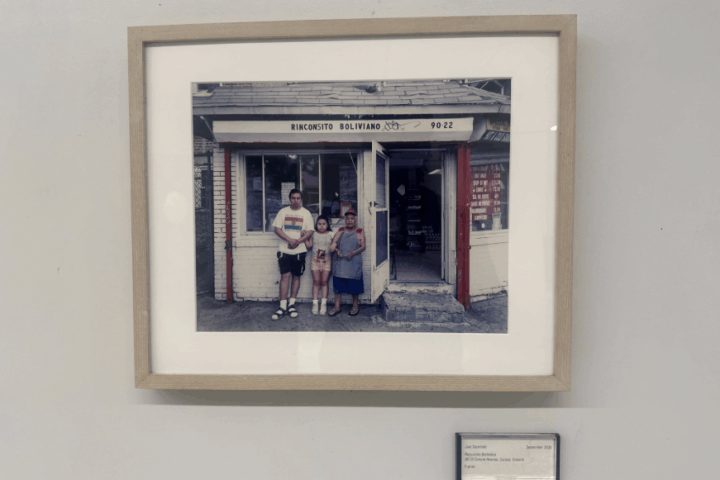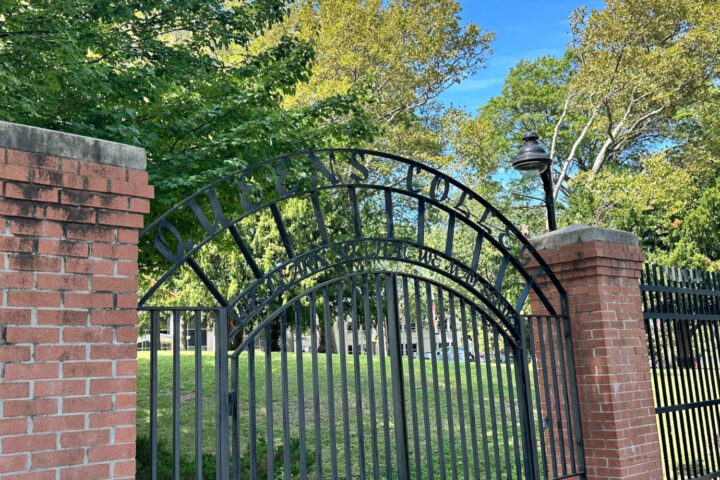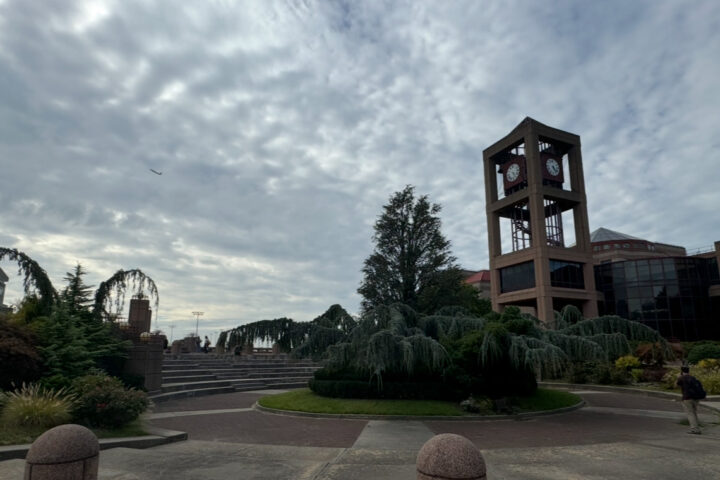Life after the war was rough for Dan Miller, a Marine Corps Veteran. Had it not been for the Wounded Warriors project, Miller would’ve died with a broken heart and a bullet through his head.
Miller, a 29 year veteran, credited the Wounded Warriors Project for saving his life, in his speech made at Queens College on Nov. 1.
In a room filled with veterans, Miller spoke of the WWP pamphlet that he saw lying around in his car as he was about to pull the trigger and end all of his misery.
His curiosity to learn more about WWP was aroused by a pamphlet that featured the cover photo of a veteran, with no legs, working out at a gym. This diverted his thoughts from believing he was an unfit husband and father, to wanting to learn more about WWP’s mission.
WWP is a nonprofit organization that offers resources and rehabilitation to veterans battling PTSD. They are devoted to helping veterans get back on their feet, something which had helped Miller recover long after he had retired from the Marine Corps, and his doctor had diagnosed him with PTSD and traumatic brain injury.
Miller, an Illinois native, had enrolled into the Marine Corps at 17 years old, and throughout his career had served in many roles, including Military Occupational Specialty holder, Artillery crewman and small unit infantry leader. He had been deployed in numerous missions, including “Desert Storm” and twice in support of “Operation Iraqi Freedom.”
Miller quickly learned that to survive on the battlefield, he’d have to detach himself from his emotions.
“The first time I saw a combat and I saw brutality of men vs men was during Desert Storm , I spent 10 months there. As a young kid, when you get shot at for the first time, the response was ‘is this for real someone is trying to hurt me?’”
The Illinois native accepted that fact that he was going to die and continued by saying that “I’ve learned from the Marine Corps that you take your emotions and bury them. Marine Corps are never tired. They don’t complain, they’re always positive and always do what they’re supposed to do.”
Miller recalled his time in Baghdad’s “Triangle of Death” in 2004, which was where he witnessed his co-worker, Nick, wail after he was struck by a bomb.
“I heard Nick cry for his mother. He was bleeding and turning gray, blue and purple. All of the taps turned into slaps, at one point, I ended up punching him to revive him,”
Nick survived when a helicopter had brought him to a local hospital. Others weren’t so lucky, Miller said, citing the deaths of 16 Marines. One soldier he recalled, had spoken to him just five minutes before he died. The soldier left his wife and their unborn child behind.
Life outside of the Marine Corps was good for Miller, until an unexpected call from his uncle. Miller rushed home from his station in Hawaii in time to bid his mother goodbye before her death from lung cancer in 1991. This too took a toll on him emotionally.
“That event changed my world, I decided to get out of that and become a reservist. I didn’t have a job and suddenly I had bills to pay and my uncle was like ‘you got to get a job.’”
Miller’s uncle got him a job as a police officer. Miller retired from law enforcement 21 years later and was diagnosed with PTSD and traumatic brain injury.
The veteran quickly turned to alcohol and, before he knew it, his marriage started falling apart.
Miller pretended that he didn’t have PTSD for some time until,, upon being served divorce papers, he found himself alone in his car with a gun in his hand.
The brochure changed everything, and since that incident Miller has devoted his life to the Wounded Warriors Project for the past 3 years, where he now serves as a spokesperson and encourages veterans to not suppress their emotions and instead go out and seek the help that they need.
“You have to break that wall down,” he said, “or else it will stop you from getting the help that you need. There’s no easy way around it; you just have to get through it.”














